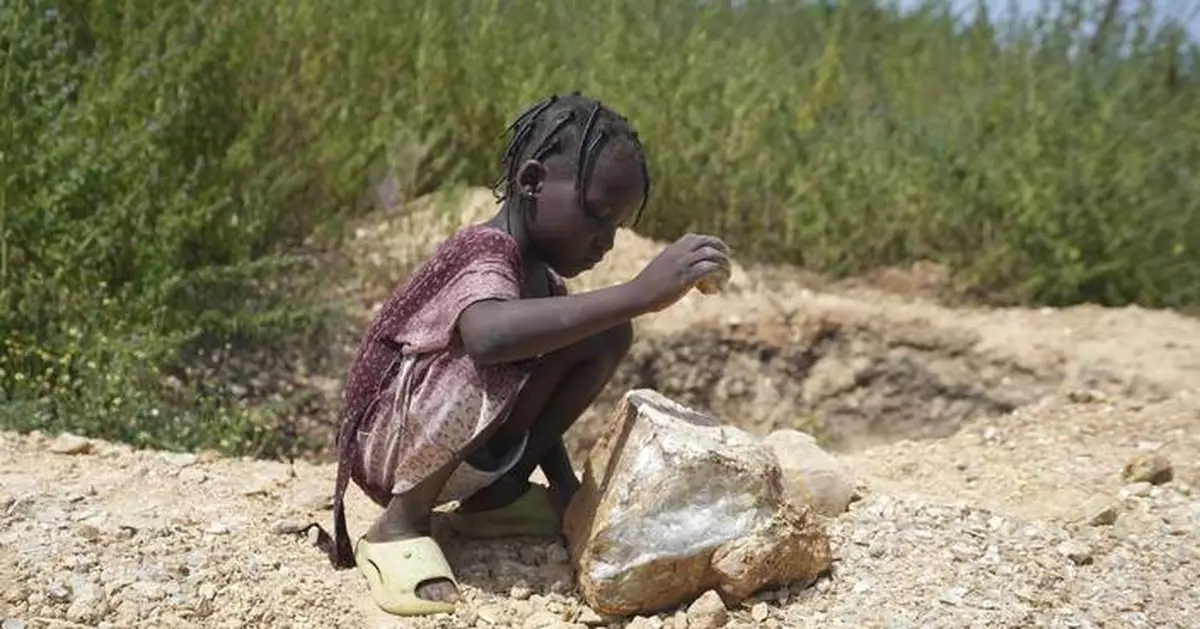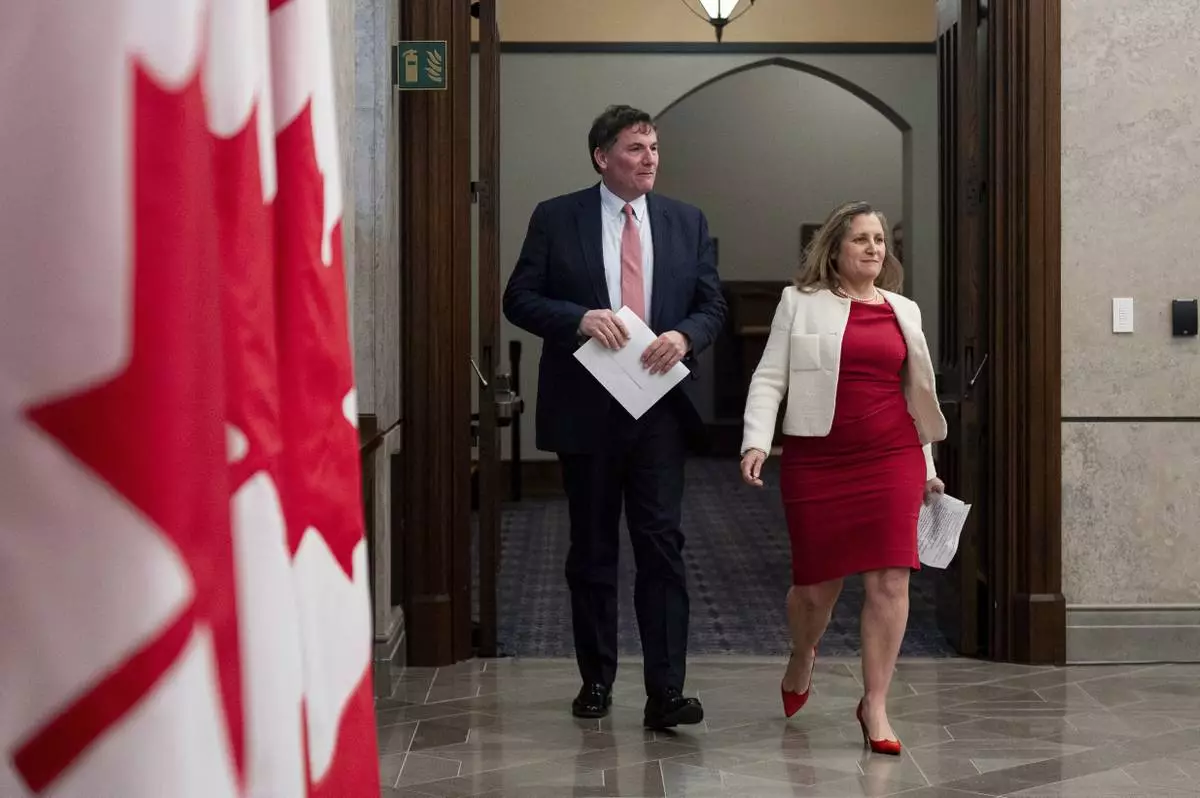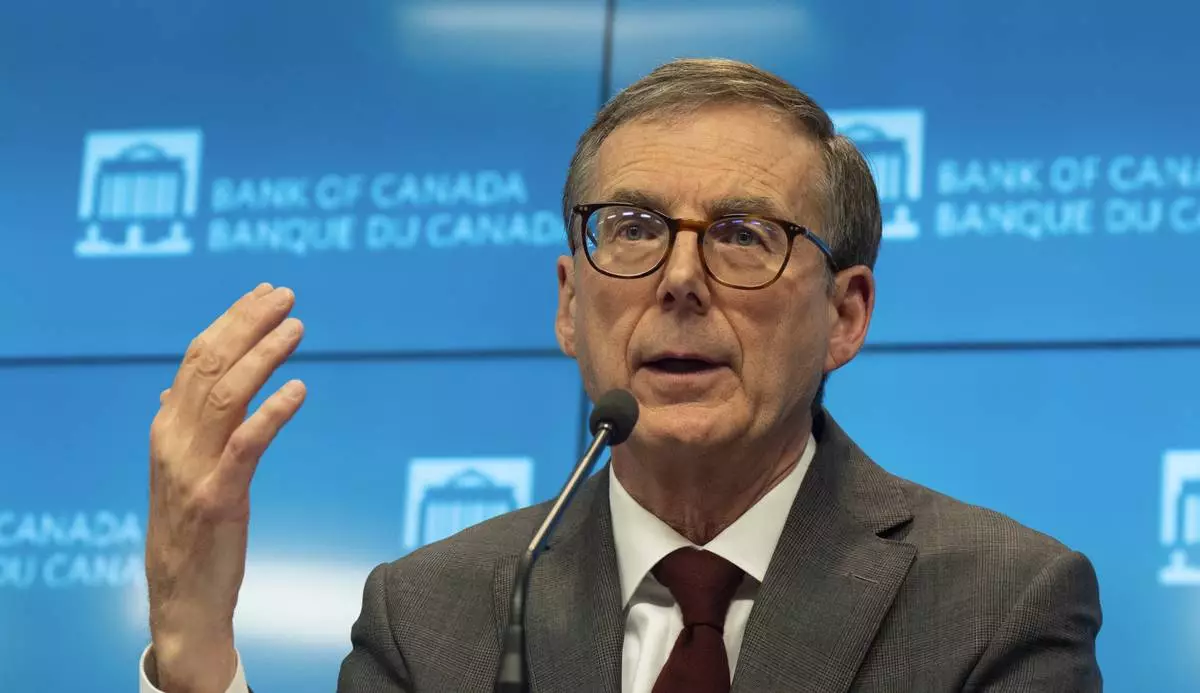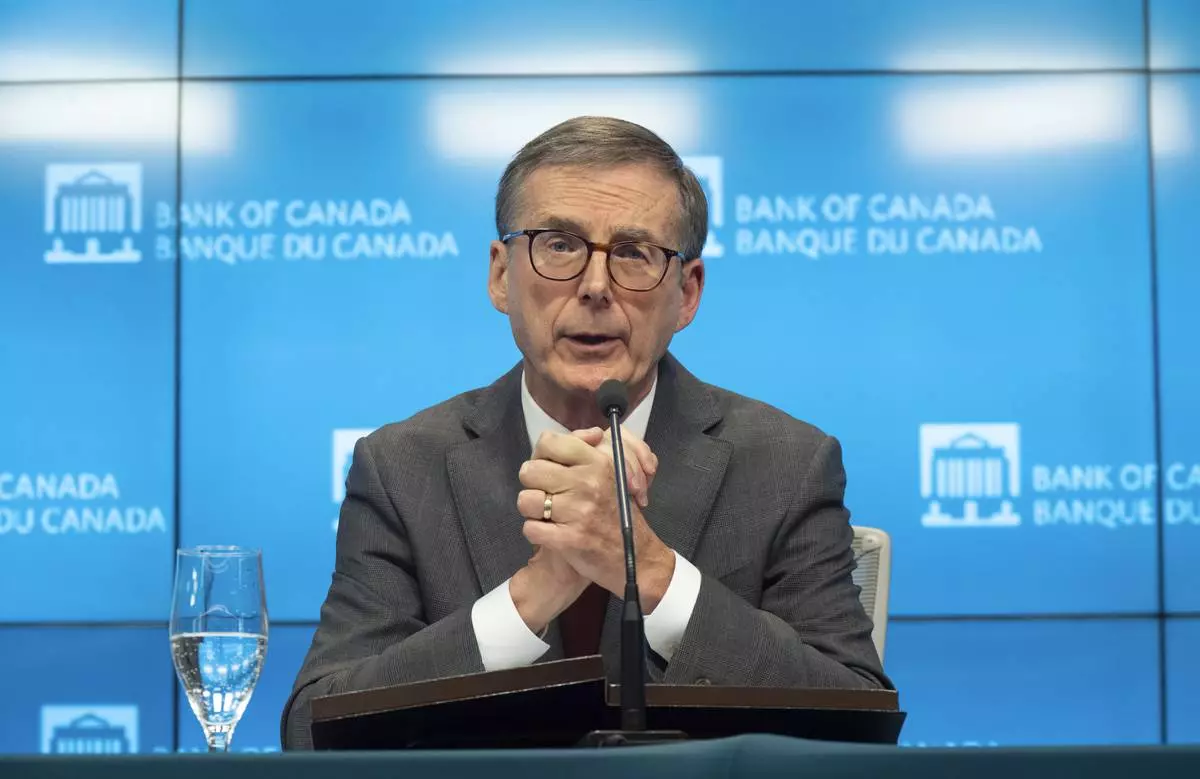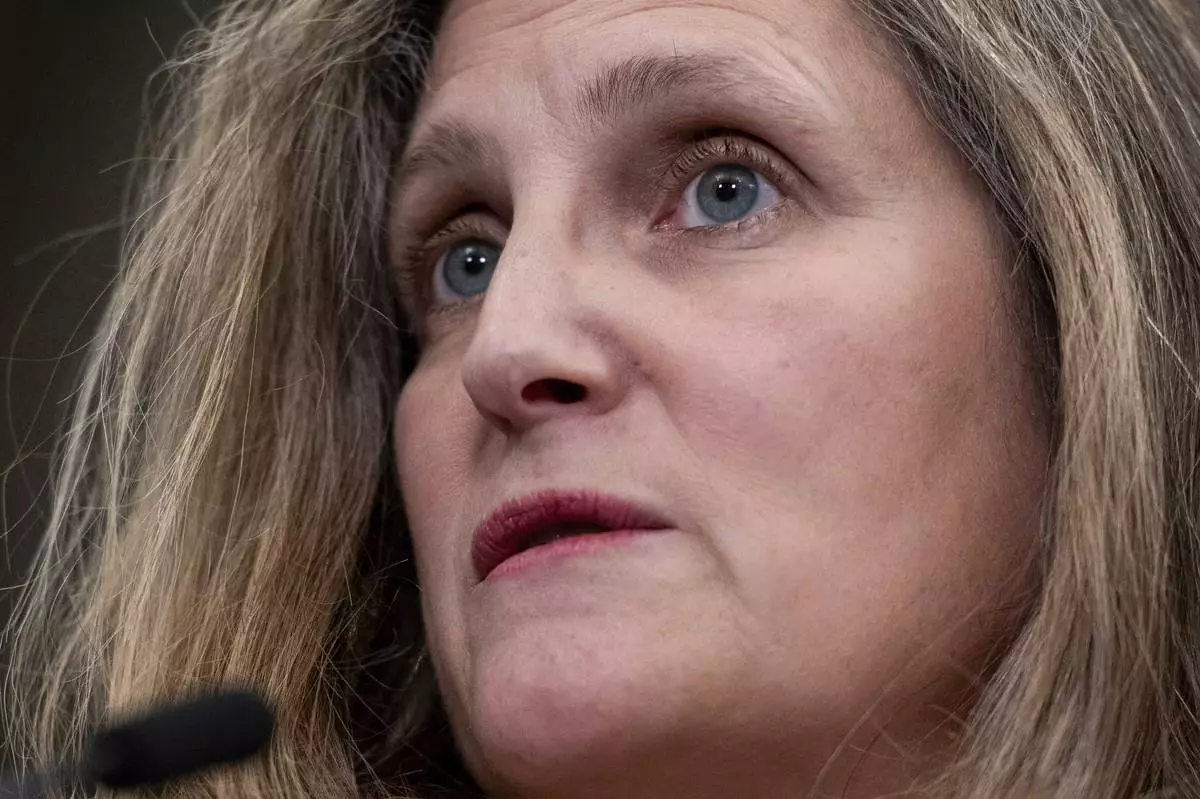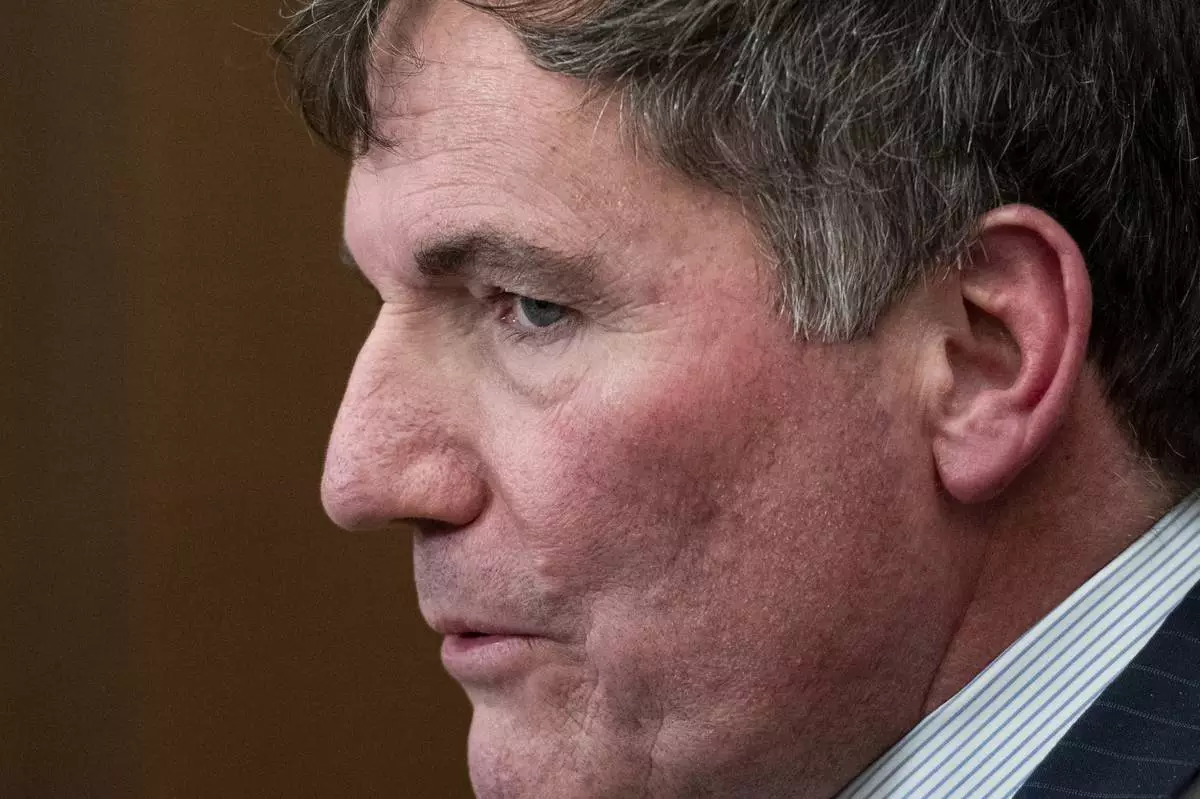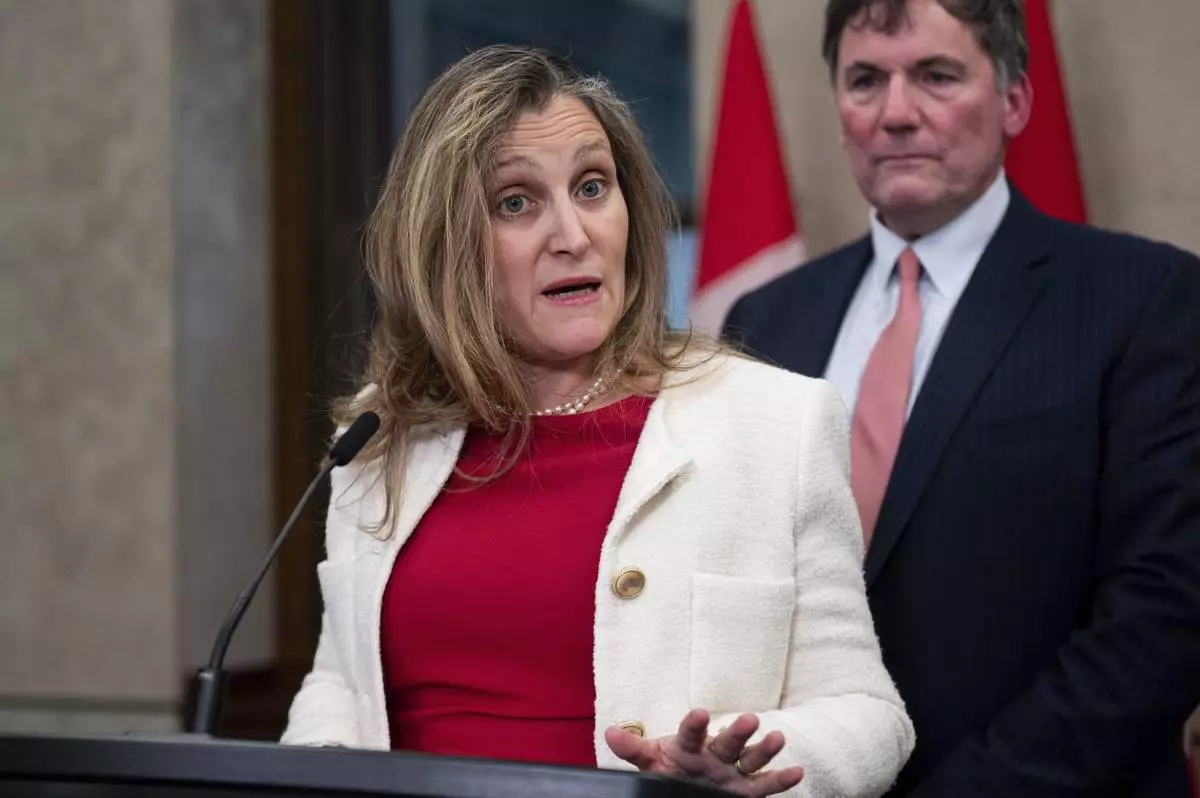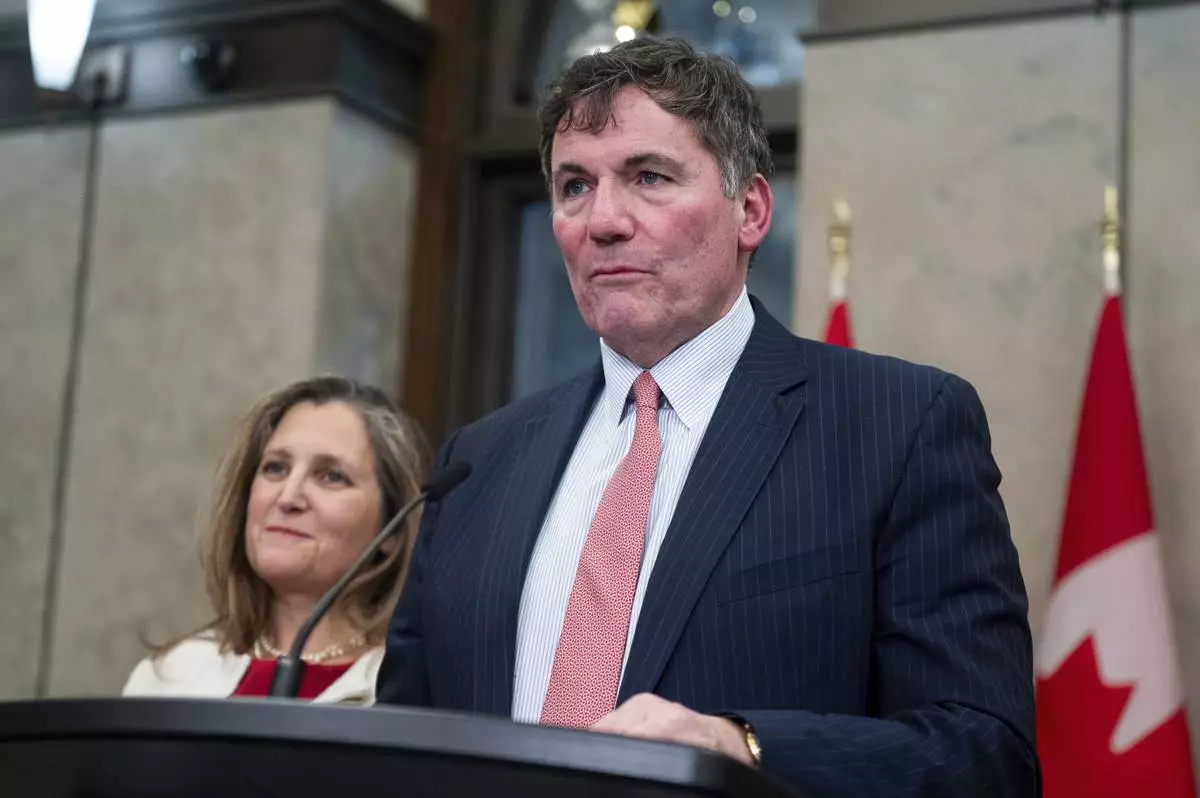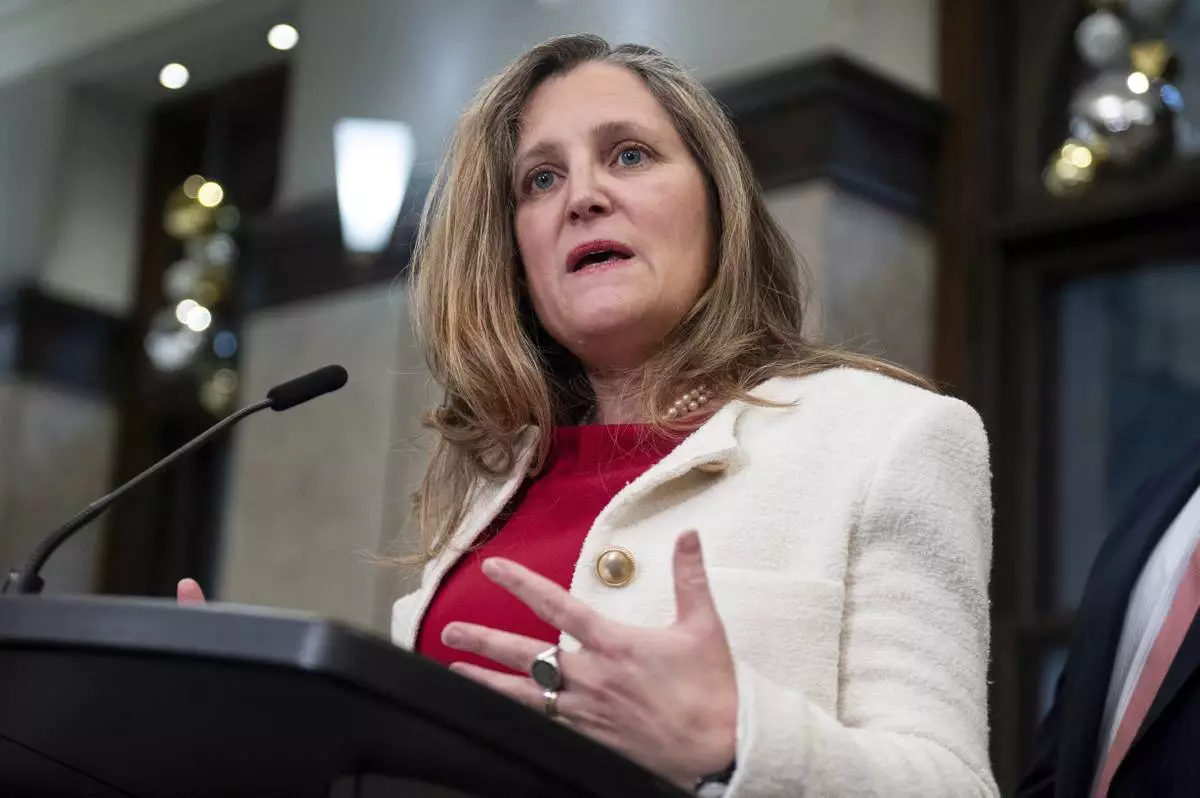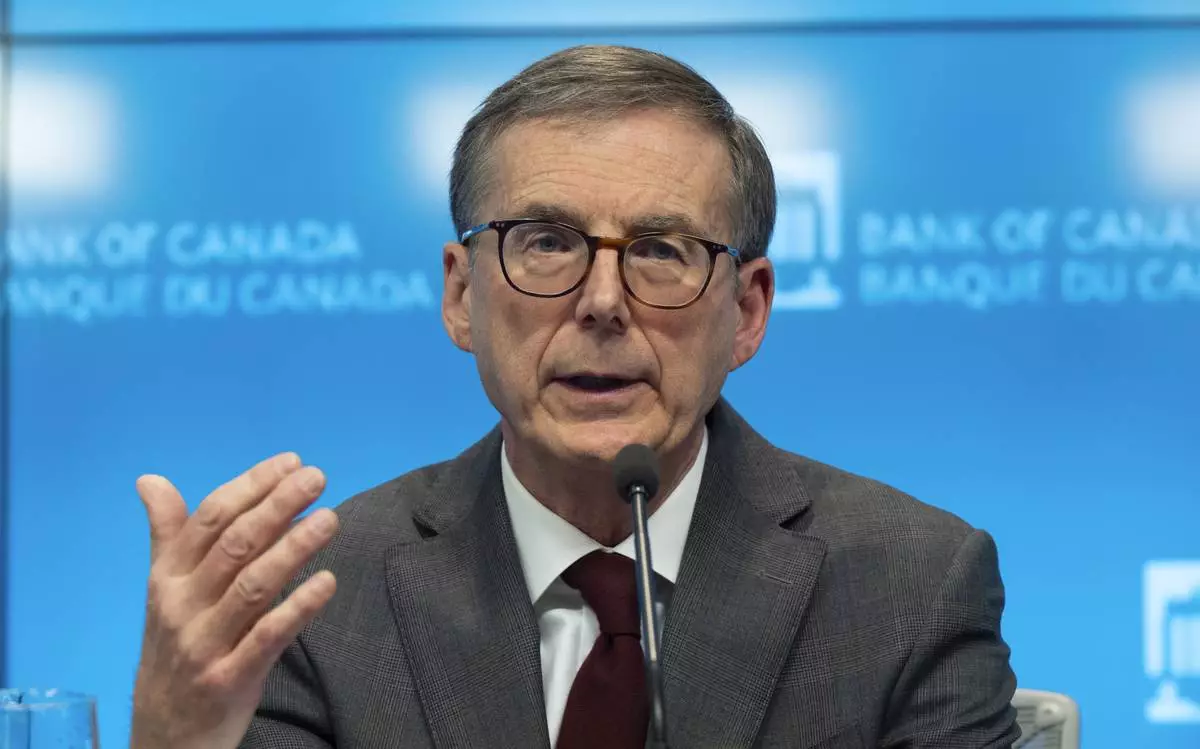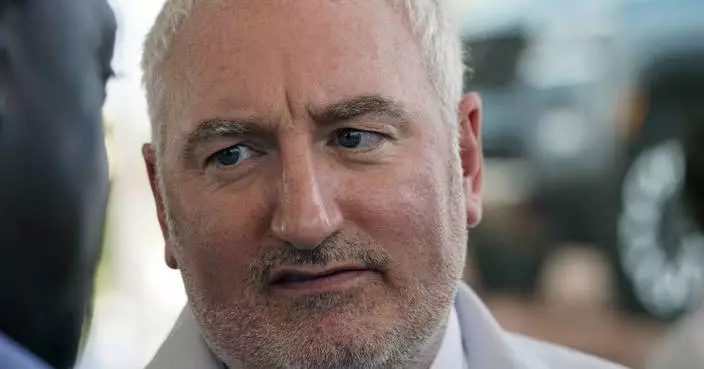NASARAWA, Nigeria (AP) — Dressed in a faded pink dress, 6-year-old Juliet Samaniya squats under scorching skies to chip at a jagged white rock with a stone tool. Dust coats her tiny hands and her hair as she works hour after hour for less than a dollar a day. The landscape around her is dotted with active and abandoned mineshafts, farmland that may soon be cleared in search of more rich ore, and other mine workers — many of them children.
Juliet should be in school, her mother, Abigail Samaniya, admits. Instead, she spends her day mining lithium, a mineral critical for batteries needed in the global transition to clean energy, to earn money that helps sustain her family.
“That is the only option,” Abigail Samaniya said.
The International Labour Organization estimates more than 1 million children work in mines and quarries worldwide, a problem particularly acute in Africa, where poverty, limited access to education and weak regulations add to the problem. Children, working mostly in small-scale mines, work long hours at unsafe sites, crushing or sorting rocks, carrying heavy loads of ore, and exposing themselves to toxic dust that can cause respiratory problems and asthma.
The growing demand for lithium has created a new frontier for mining in mineral-rich Nigeria. But it has come with a steep cost, exploiting its poorest and most vulnerable: its children. Their work often provides material for Chinese businesses that dominate Nigeria’s laxly regulated extractive industry and are often blamed for illegal mining and labor exploitation.
The Associated Press recently traveled to the deep bush of Pasali, near the federal capital of Abuja in Nasarawa state, to follow and interview miners operating illegal mines, including the one where Juliet works. AP also witnessed negotiations and an agreement to purchase lithium by a Chinese company with no questions about the source of the lithium or how it was obtained.
That company, RSIN Nigeria Limited, did not respond to repeated requests for comment. But in a statement to AP, the Chinese embassy in Abuja said Chinese mining companies in Nigeria “operate in line with local laws and regulations.”
Nigeria has laws requiring basic education and prohibiting child labor, but enforcement is a challenge with many illegal mines in hard-to-reach areas. Corruption among regulatory and law enforcement officials is also a problem. The government said it's pursuing reforms that would toughen laws. Earlier this year it also launched a “corps of mining marshals” to combat illegal mining, but activists say it's too soon to tell if that program is helping.
Lithium mining began in Pasali a decade ago, transforming a remote and slumbering community into a bustling site for small-scale illegal mining, said Shedrack Bala, a 25-year-old who began working in the mines at age 15 and now owns his own pit. Dozens of mines now dot the area, all unlicensed.
The mining methods are primitive and dangerous. Miners use chisels and heavy hammers to break through rocks, descending several feet into dark pits. In some old but still viable mines, they crawl through narrow passages snaking between unstable mud walls before starting to dig. For new mines, the ground is blasted open with dynamite.
Bashir Rabiu, now 19, started in these pits as an underage worker. AP journalists watched as he wriggled around at the bottom of a pit, where miners can be at risk if dynamite explodes prematurely. They also face danger of suffocating in narrow tunnels that connect pits, or burial from wall collapse — all fates Rabiu has seen befall other miners.
“But it is God that protects,” he said.
Rabiu hauled up raw lithium ore and passed it to Juliet and five other children, all younger than 10. Wearing rubber slippers and dust-stained shorts and shirts, the children hunched over heaps of rubble and chipped away with crude stone tools to extract valuable fragments. Once sorted, the minerals were bagged to begin their journey from Pasali to the global supply chain.
A team of six children can sort and bag up to 10 25-kilogram bags of lithium-rich rock a day. When the AP visited, they did 22 kilograms (about 48.5 pounds) in one hour. For working from early morning to late evening, the children typically share 4,000 naira (about $2.42), according to Bala and others who use them. They said it is enough money to cover meals at the children’s homes.
In Juliet's group, only she and a 5-year-old boy named Zakaria Danladi had ever attended the local elementary school. Zakaria stopped when he was orphaned. Juliet was pulled out because her family couldn't afford to send both her and her 11-year-old brother, and his education took precedence, her mother said.
Basic education is supposed to be free in Nigeria, at least in government schools like the one in Pasali. But hidden fees often put it out of reach of the poorest families. For example, in Pasali, a Parent-Teacher Association levy of 5,000 Naira (about $3) is charged per term, parents said. For Juliet’s family and others, even this amount is too much. About 63% of Nigeria's population lives in poverty.
Sule Dantini, the schoolmaster, said his classes have become virtually empty with only three pupils turning up when he spoke with AP in early December. “I used to have up to 300 pupils, but attendance has been very poor because of mining.” He denied the school charges fees.
Nigeria is Africa’s top oil producer, but it also has deep mineral resources including granite, limestone, and gold, and it's seeking to tap those to reduce its reliance on petroleum exports. Yet much of this wealth — including lithium — is siphoned off through unlicensed mines that cost the nation billions of dollars and drive insecurity, according to a parliamentary probe this year.
The illegal mining thrives on informal networks of buyers and sellers who operate without much fear of the government. Aliyu Ibrahim, a lithium merchant in Nasarawa, owns unlicensed mines and also buys lithium ore from other illegal sites. At his warehouse, he told AP that his business flourishes by paying officials to look the other way. Ibrahim said he then sells his lithium in bulk to Chinese companies.
Ibrahim said he knows that children are working at his mines and others he buys from, but he said many of the children are orphans or poor.
“It is dangerous, but the work helps them survive, while the government has abandoned poor people," he said.
Some of the bush miners avoid middlemen like Ibrahim and sell directly to Chinese companies or Chinese nationals.
AP accompanied miners from Pasali illegal mines to Chinese-owned RSIN Nigeria Limited, where a sales agreement was reached without questions about the source of the minerals or the conditions under which they were extracted. Sellers were asked to leave samples to test for lithium content. A price list from the buyers offered 200,000 naira (about $119) for a metric ton of minerals containing up to 3% lithium.
China's citizens and companies are frequently in the spotlight for environmentally damaging practices, exploitative labor and illicit mining in several countries. Nigeria has seen multiple cases of illegal mining arrests and prosecutions involving Chinese nationals in recent months. Experts say the materials are exported in a variety of ways, including shipping with false documentation or concealment within legitimate shipments.
The Chinese embassy's statement to AP said its government has a zero-tolerance policy toward any illegal mining activity or illegal labor by Chinese companies operating abroad.
Philip Jakpor, a Nigerian activist, said his nonprofit Renevlyn Development Initiative has documented widespread child labor practices across Nasarawa state.
“Revenue generation seems to have trumped the need to protect human rights,” Jakpor said. “We expect those operating in the upper spheres of the supply chain to adopt responsible models that prevent abusive conditions in mineral extraction.”
Juliane Kippenberg, associate director of children’s rights at Human Rights Watch, said global demand for lithium is expected to grow rapidly in coming years and it's imperative for governments to protect human rights and press corporations to do the same.
Segun Tomori, a spokesperson for the Ministry of Mining and Solid Minerals Development, said ongoing reforms such as amending the Minerals and Mining Act are aimed at minimizing the use of child labor. Tomori also said social safety programs such as school feeding initiatives are being revamped to keep children in school and combat child labor. He also cited the program to add mining marshals announced this year to clamp down on illegal mining.
Abigail Samaniya, 6-year-old Juliet's mother, said she hopes her daughter will someday escape the mine.
“I still want her to go to school, have a better life, work in an office, not a mine forever," she said.
The Associated Press’ climate and environmental coverage receives financial support from multiple private foundations. AP is solely responsible for all content. Find AP’s standards for working with philanthropies, a list of supporters and funded coverage areas at AP.org.
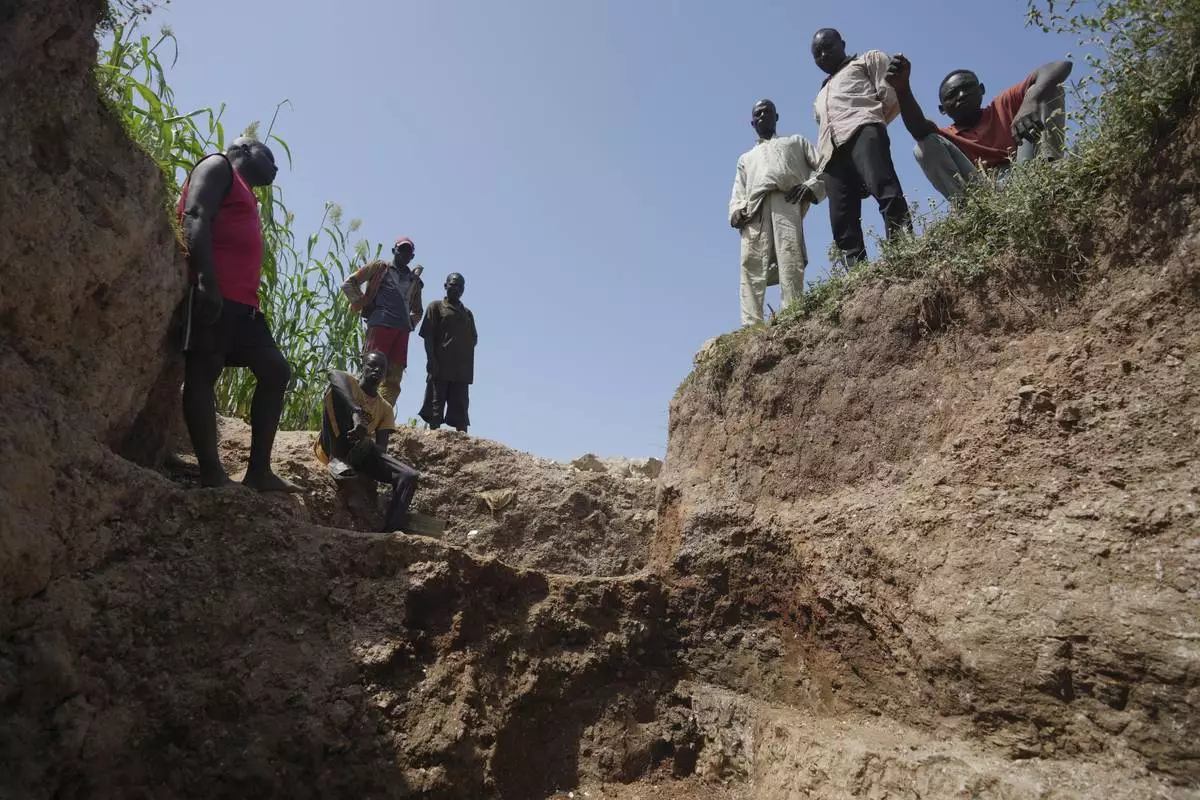
Workers stand at an illegal lithium mine in Paseli, Nigeria, Tuesday, Nov 5, 2024. (AP Photo/Sunday Alamba)
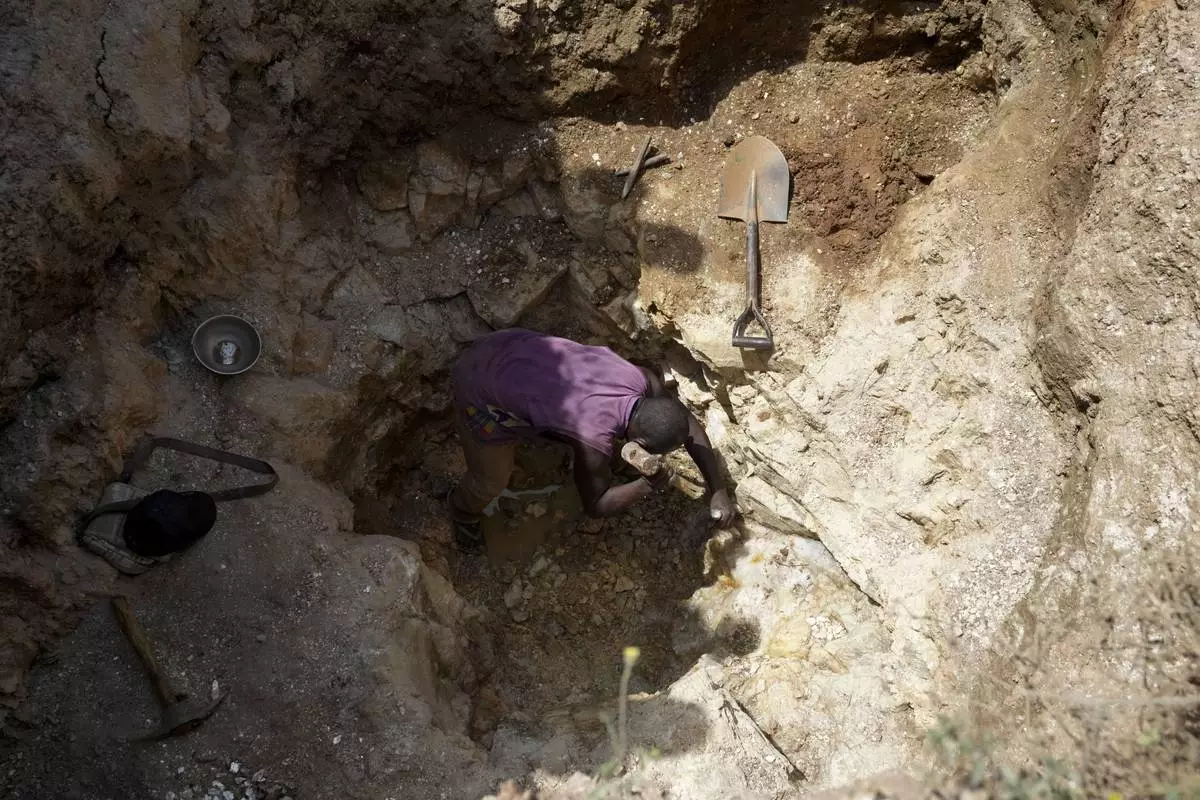
Yusuf Rabiu works at an illegal lithium mining site in Paseli, Nigeria, Tuesday, Nov 5, 2024. (AP Photo/Sunday Alamba)
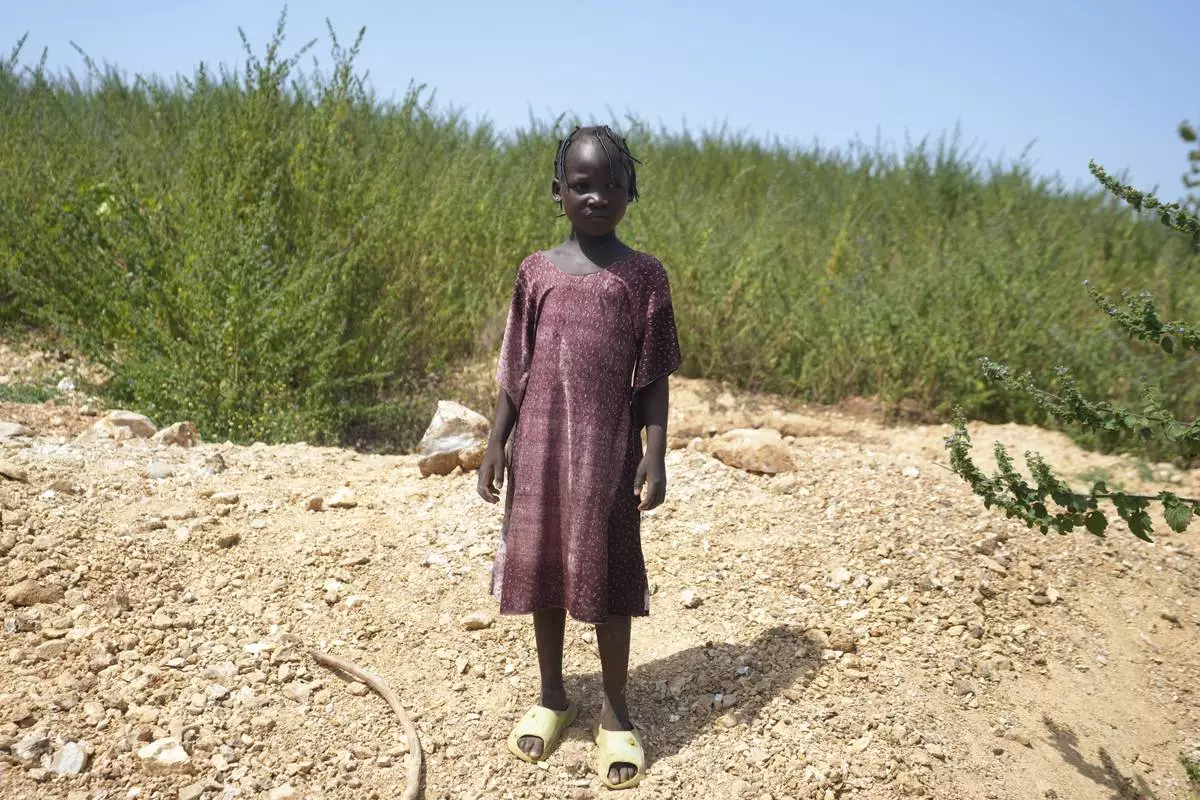
Juliet Samaniya, 6, poses for a photograph at an illegal lithium mining site where she works in Paseli, Nigeria, Tuesday, Nov 5, 2024. (AP Photo/Sunday Alamba)
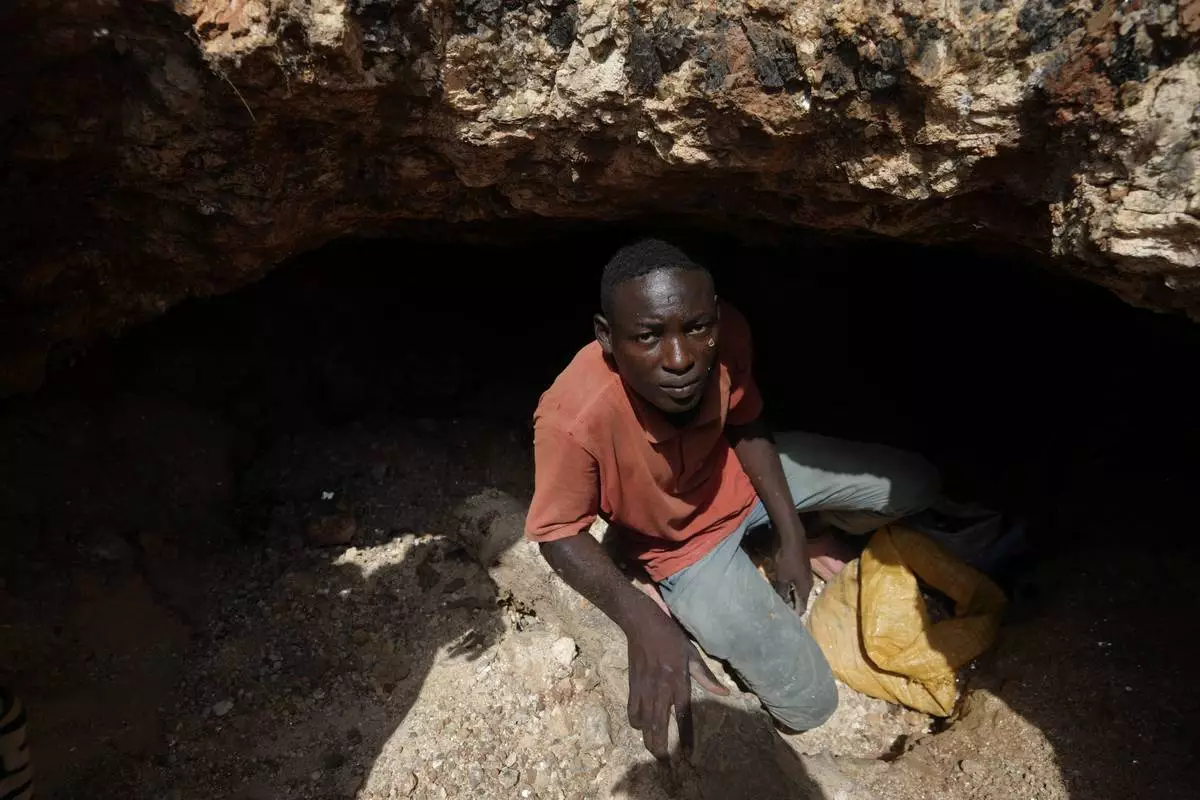
Bashir Rabiu, 19, poses for a photograph inside at an illegal lithium mining site in Paseli, Nigeria, Tuesday, Nov 5, 2024. (AP Photo/Sunday Alamba)
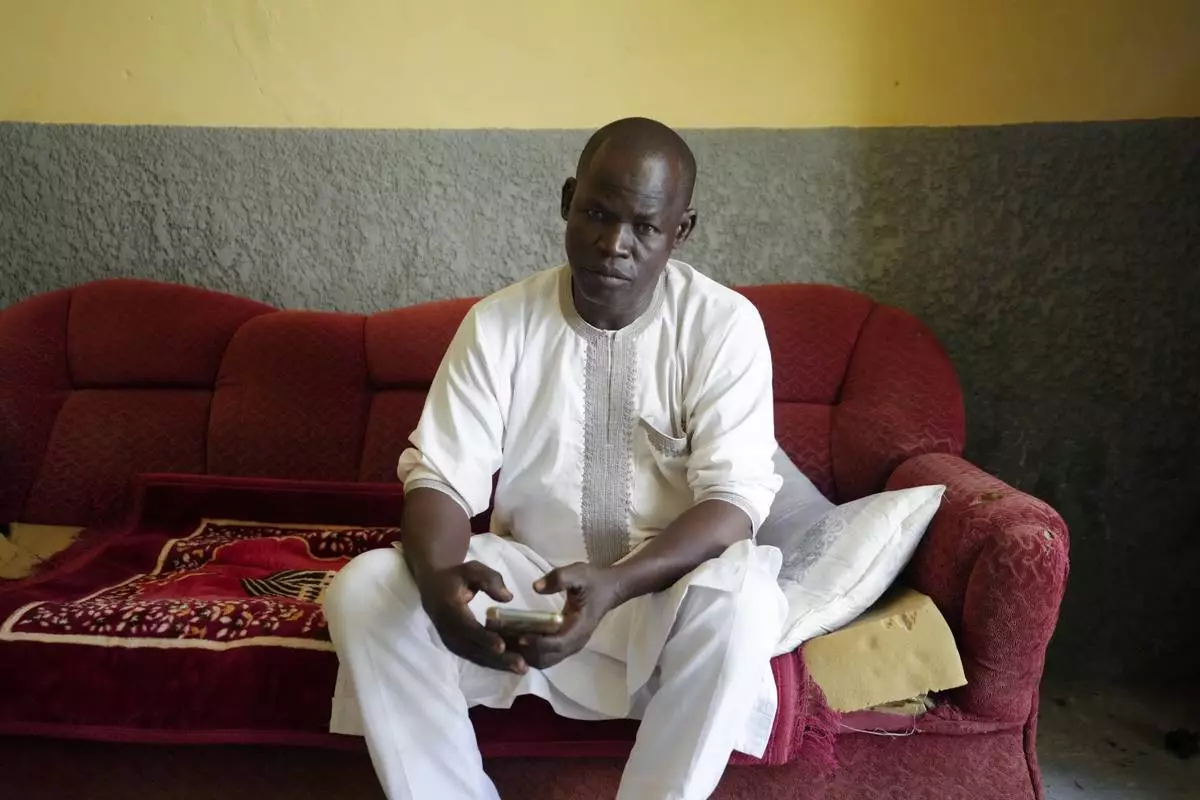
Aliyu Ibrahim, a lithium merchant, speaks with The Associated Press about his business in Nasarawa, Nigeria, Tuesday, Nov 5, 2024. (AP Photo/Sunday Alamba)
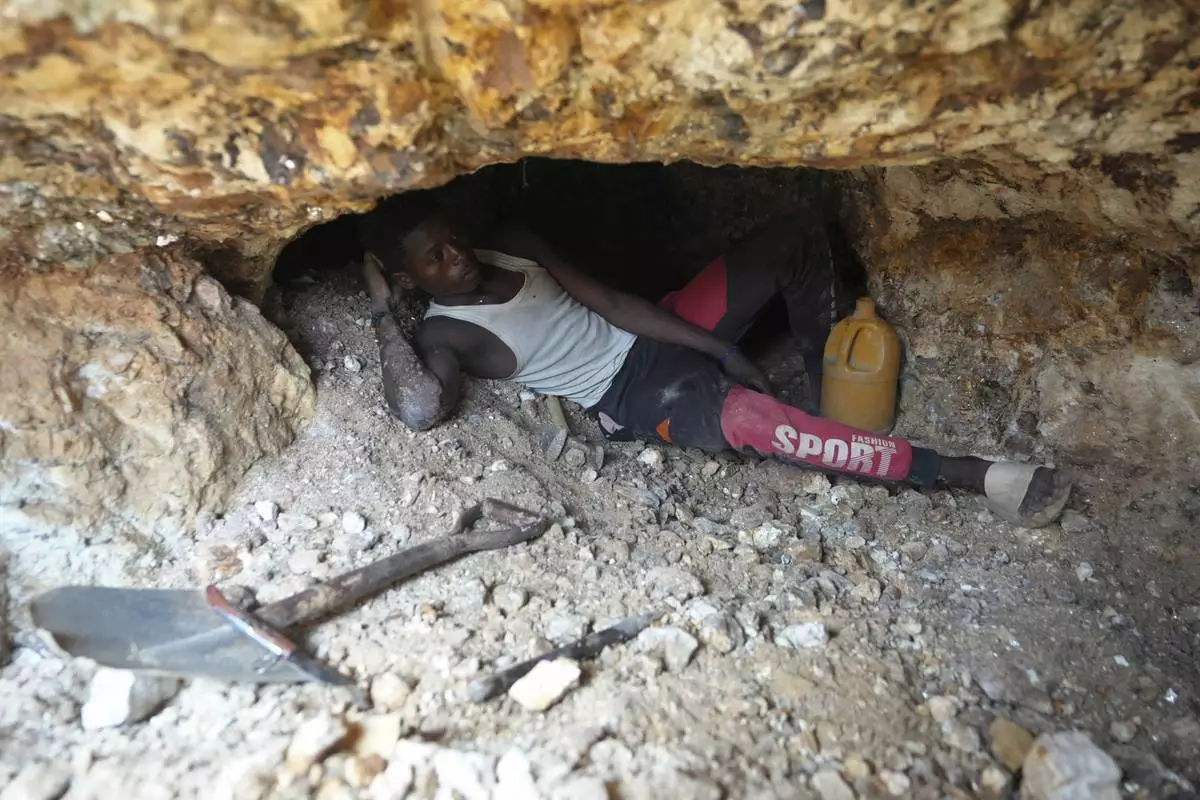
A worker takes a rest at an illegal lithium mining site in Paseli, north central Nigeria, Tuesday, Nov 5, 2024. (AP Photo/Sunday Alamba)
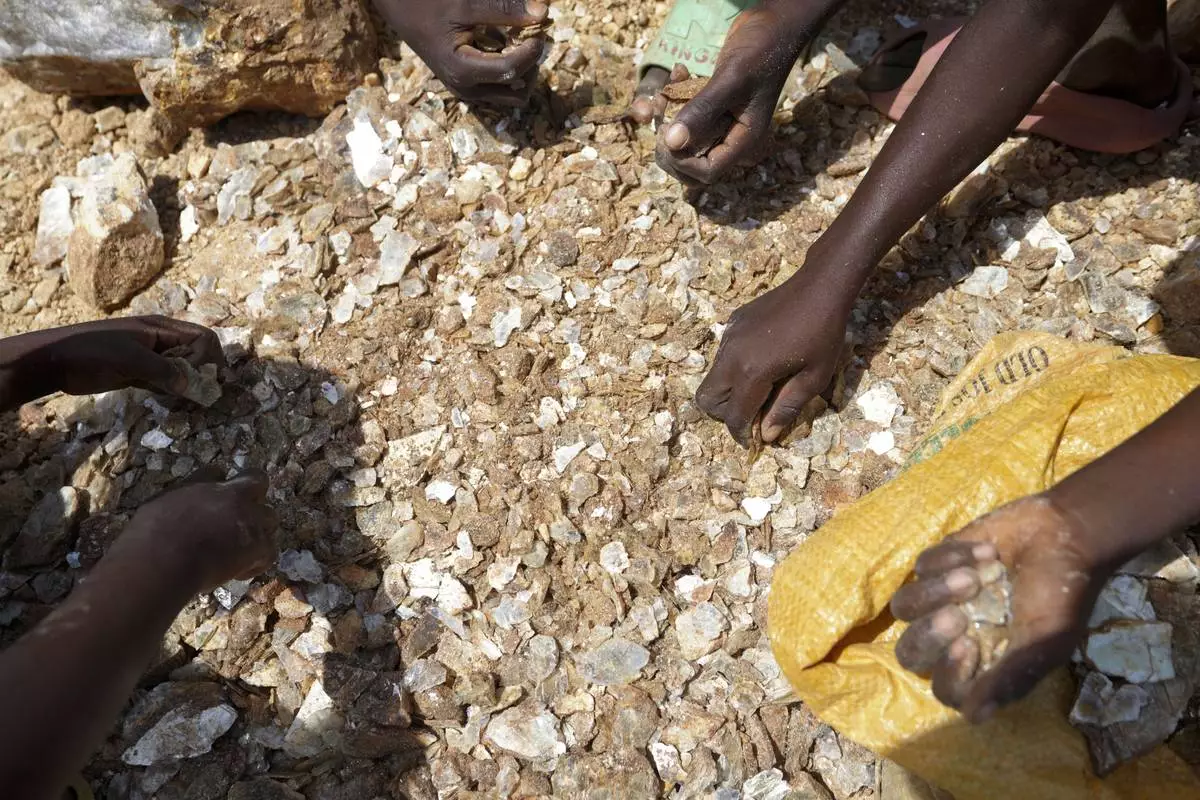
Juliet Samaniya, 6, works with other children at an illegal lithium mining site in Paseli, Nigeria, Tuesday, Nov 5, 2024. (AP Photo/Sunday Alamba)
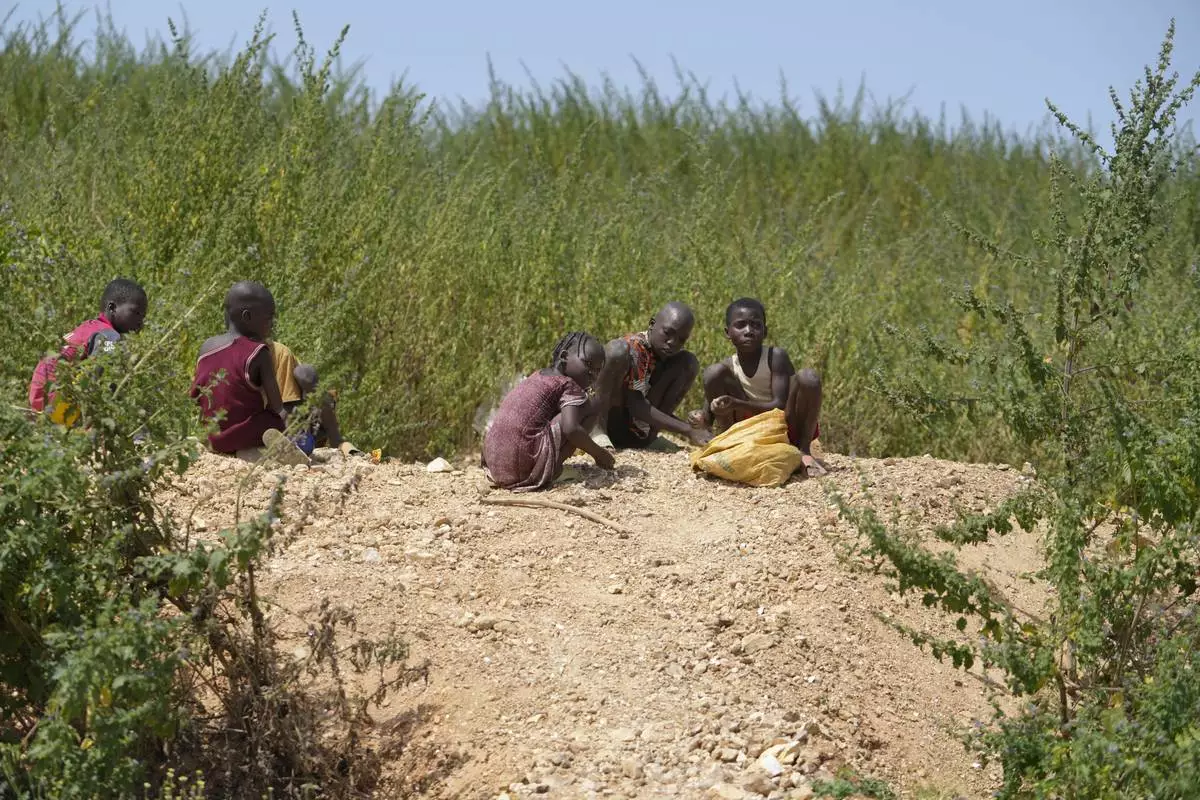
Juliet Samaniya, 6, chips at a rock with other children at an illegal lithium mining site in Paseli, Nigeria, Tuesday, Nov 5, 2024. (AP Photo/Sunday Alamba)
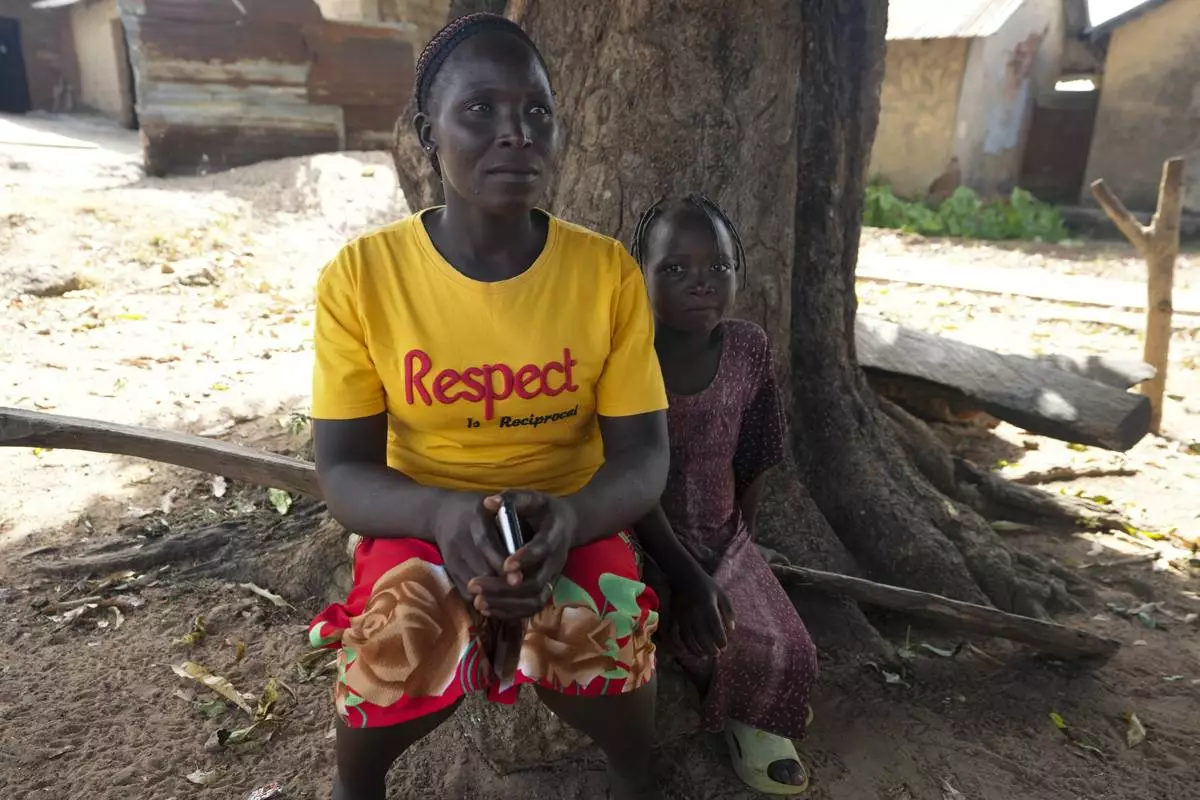
Abigail Samaniya, left, mother of Juliet Samaniya, right, 6, sit together as they speak with The Associated Press in Paseli, Nigeria, Tuesday, Nov 5, 2024. (AP Photo/Sunday Alamba)
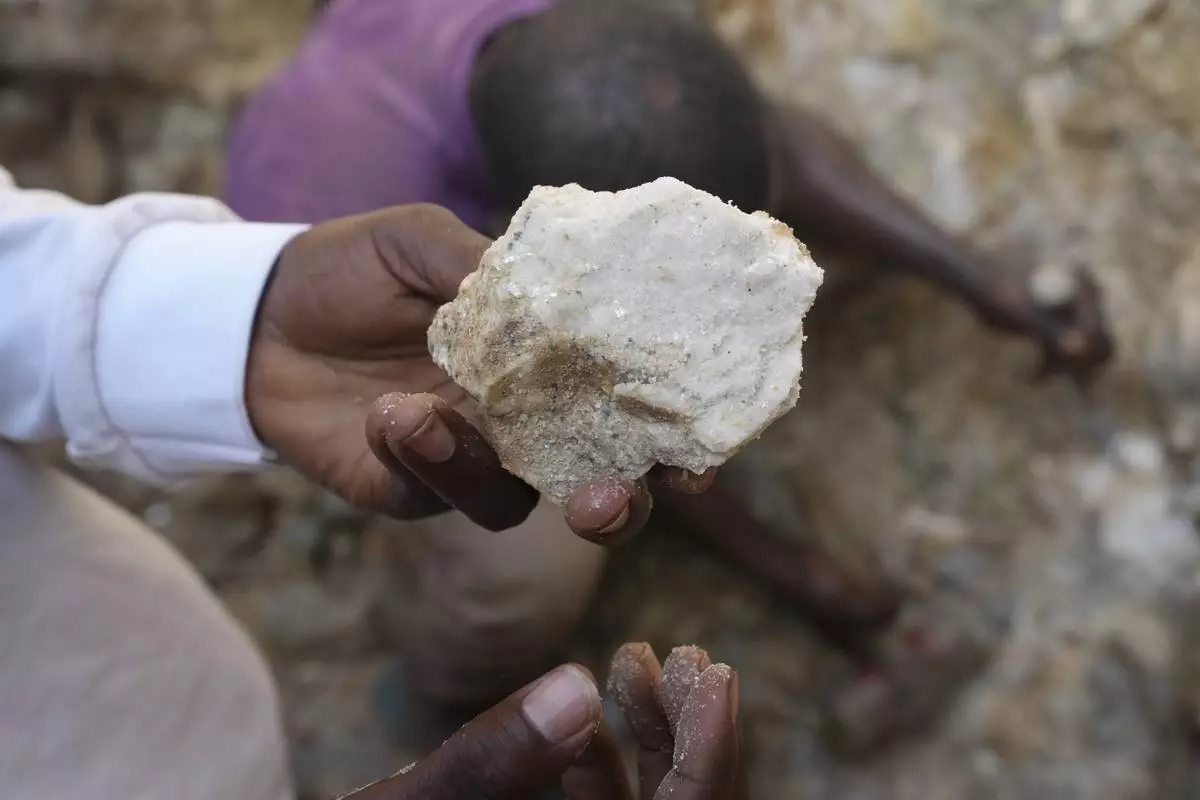
A man shows lithium stone from an illegal mining site in Paseli, north central Nigeria, Tuesday, Nov 5, 2024. (AP Photo/Sunday Alamba)
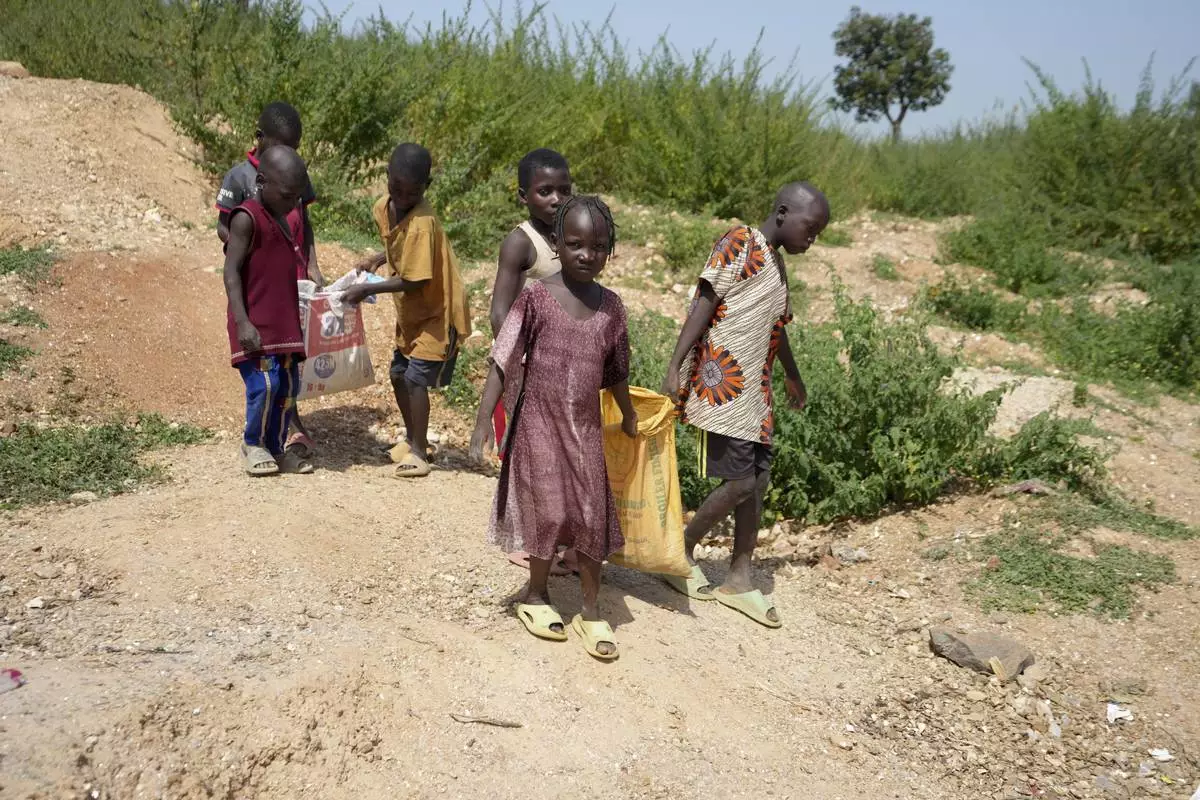
Juliet Samaniya, 6, carries a bag of lithium with other children at an illegal mining site in Paseli, Nigeria, Tuesday, Nov 5, 2024. (AP Photo/Sunday Alamba)
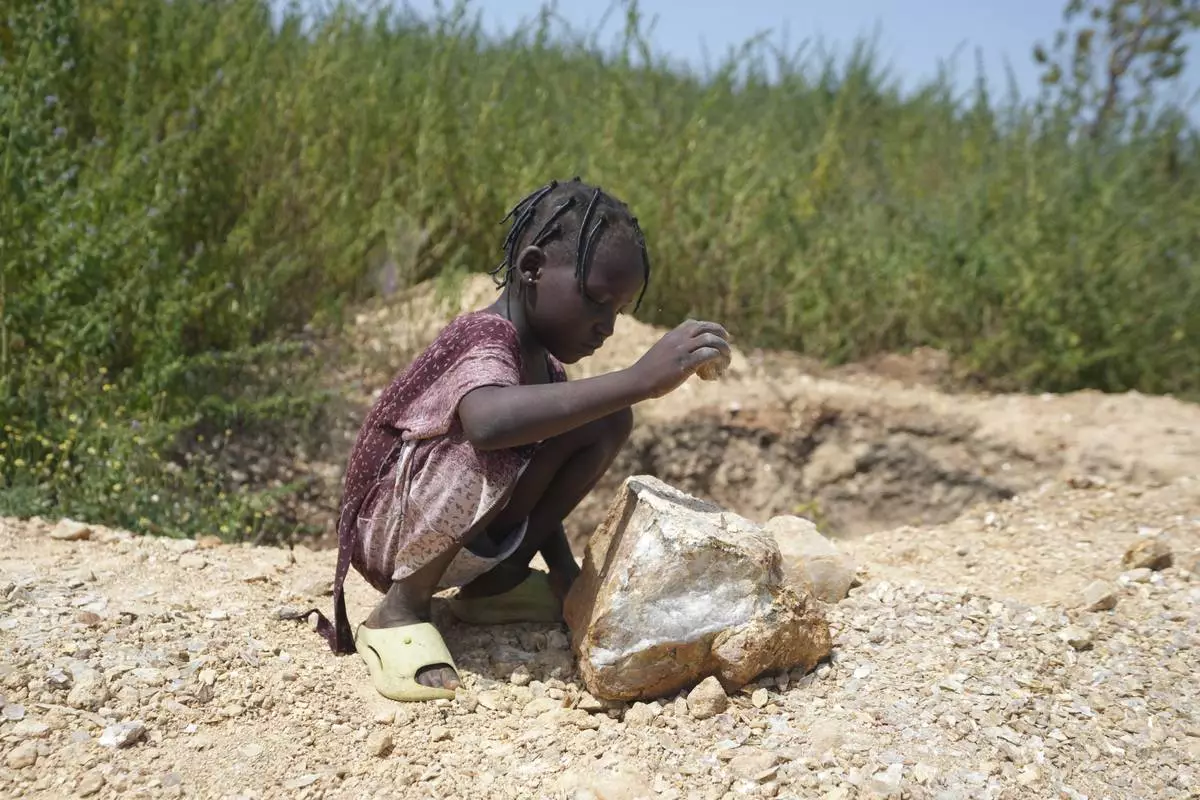
Juliet Samaniya, 6, chips at a rock with a stone tool at an illegal lithium mining site in Paseli, Nigeria, Tuesday, Nov 5, 2024. (AP Photo/Sunday Alamba)


